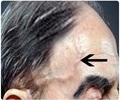Two high-signal genetic markers correlated with coronary artery disease (CAD) that should help define genetic fingerprints that can signal an elevated risk of developing the disease have been reported by researchers of University of Minnesota School of Public Health. The results also offer biological and clinical data supporting future research into the genetic markers and their relationship to CAD, a condition that impacts more than 13 million Americans each year.
The research, led by Weihong Tang, Ph.D., M.S., M.D., a genetic epidemiology expert and assistant professor of epidemiology and community health in the University of Minnesota's School of Public, is published online today in the
American Journal of Human Genetics."Our research looked at two common clinical blood tests used to detect deficiencies in clotting process, the Activated Partial Thromboplastic Time (aPTT) test and the Prothrombin Time (PT) test," said Tang. "Our goal was to see if there were genetic markers or signals within the tests that could indicate which patients were at higher risk for coronary artery disease. What we found was that within our sample, there were some highly expressive genetic markers that indeed signaled an increased risk."
Tang notes that this study focused on only white Americans, and that she and her colleagues would like to expand the survey's reach into minority patients. She hopes that a larger study will confirm the genetic links and make the information more accessible for physicians as they monitor patients for CAD risk factors. "There is a lot of work still to be done, but our findings should set a foundation for new types of testing that will help physicians find and treat clotting diseases in the general population," said Tang.
Source-Eurekalert















